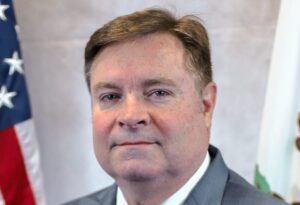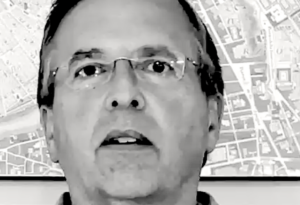Micheli Files
California’s Administrative Procedure Act (APA), which is patterned after the federal APA, sets forth the procedures by which the state’s executive branch agencies and departments must adopt regulations. In that vein, there are a few items of interest for those who participate in the rulemaking projects of state agencies.
Podcast
CAPITOL WEEKLY PODCAST: We’re joined today by Brian Marvel, President of the Police Officers Research Association of California, which represents about 80,000 public safety personnel in this state – PORAC is the largest law enforcement organization in the state and the largest statewide association in the country. Marvel has been wearing a badge for a quarter century and spoke with us about what’s changed during his time in uniform, PORAC’s goals for diversifying departments and what legislation he and his organization are watching this year.
Quick Hits
The new edition of Capitol Quick Hits: a look at a little-known but potentially hugely impactful change in how our regulates corporations and antitrust law, the real oomph of a California Senate seat and some pushback on state workers returning to the office.
Micheli Minute
Lobbyist and McGeorge law professor Chris Micheli offers a quick look at what’s coming up this week under the Capitol Dome.
News
California’s Constitution provides the three branches of government, as well as the rights of direct democracy. Article III, Section 3 provides the separation of powers among the three branches of our state government: legislative, executive, and judicial.
Podcast
CAPITOL WEEKLY PODCAST: The Taxpayer Protection and Government Accountability Act is on the November 2024 ballot – or not. The Newsom administration, the Legislature and others have challenged the legality of the measure, arguing that the sweeping changes it outlines would amount to a revision of the constitution, not a simple amendment. The California Supreme Court heard arguments in the case last week, and now local officials are left to wait and see if the measure that they are calling “an existential threat” will be removed from the ballot or face voters in November. Local politics expert Robb Korinke joins us to discuss.
Quick Hits
California lobbyists could see one of their annual fees rise as much as 900 percent if an under-the-radar bill by Sen. Steve Glazer survives Suspense Day.
Micheli Minute
Lobbyist and McGeorge law professor Chris Micheli offers a quick look at what’s coming up this week under the Capitol Dome.
News
Special interests, otherwise known as “lobbyist employers,” paid lobbying firms a little more than $76 million to lobby California state government in the first quarter of 2024, according to a Capitol Weekly analysis of lobbying firm reports.
News
Eagle-eyed readers of Capitol Weekly’s recent report on quarterly lobbying payments might have spotted an unfamiliar firm name among the top recipients for the first quarter of 2024: the Deveau Burr Group. Especially close readers also might have noticed that Strategies 360, a perennial top firm in Sacramento, was conspicuously absent from the list of top payees for the quarter.









